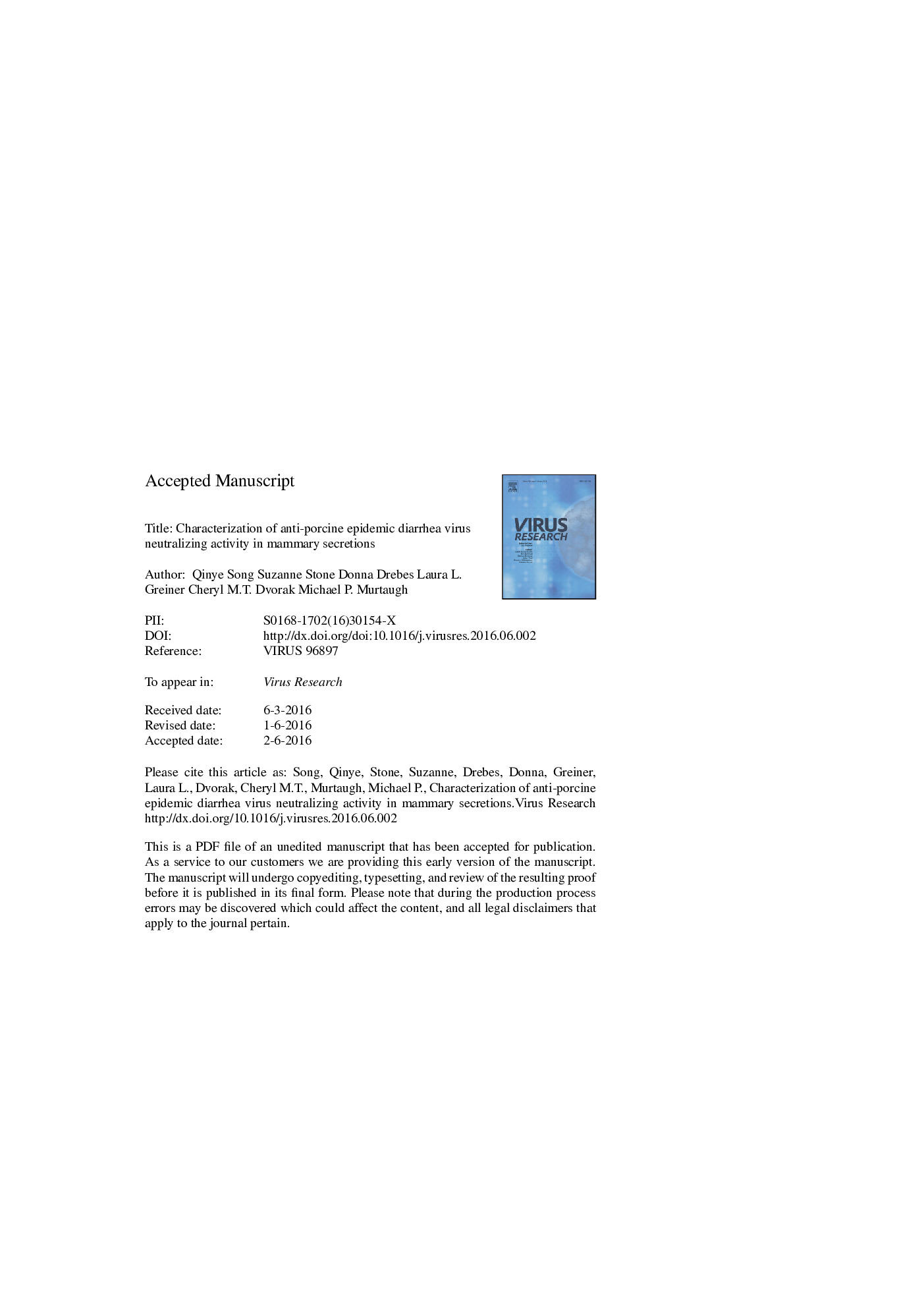| Article ID | Journal | Published Year | Pages | File Type |
|---|---|---|---|---|
| 5675459 | Virus Research | 2016 | 33 Pages |
Abstract
Porcine epidemic diarrhea virus (PEDV) causes a severe clinical enteric disease in suckling neonates with up to 100% mortality, resulting in devastating economic losses to the pork industry in recent years. Maternal immunity via colostrum and milk is a vital source to neonates of passive protection against diarrhea, dehydration and death caused by PEDV. Comprehensive information on neutralizing activity (NA) against PEDV in mammary secretions is critically important for assessing the protective capacity of sows. Therefore, the objectives of this study were to characterize anti-PEDV neutralizing activity in mammary secretions. Anti-PEDV NA was present in colostrum, milk and serum from PEDV-infected sows as determined both by immunofluorescence and ELISA-based neutralizing assays, with neutralization levels higher in colostrum and milk than in serum. The highest NA was observed in colostrum on day 1, and decreased rapidly in milk at day 3, then gradually declined from day 3 to day 19 post-farrowing. Notably, the NA in mammary secretions showed various patterns of decline over time of lactation that may contribute to variation in sow protective capacities. The kinetics of NA decline were associated with total IgA and IgG antibody levels. Neutralizing activity significantly correlated with specific IgA primarily to spike domain 1 (S1) and domain 2 (S2) proteins of PEDV rather than to specific IgG in colostrum. Subsequently, the NA in milk was mainly related to specific IgA to S1 and S2 during lactation.
Related Topics
Life Sciences
Immunology and Microbiology
Virology
Authors
Qinye Song, Suzanne Stone, Donna Drebes, Laura L. Greiner, Cheryl M.T. Dvorak, Michael P. Murtaugh,
